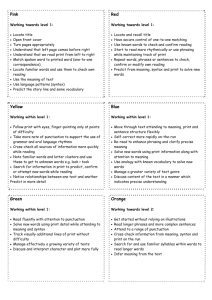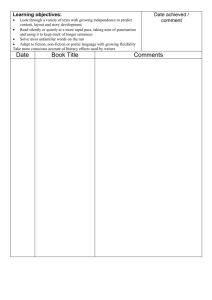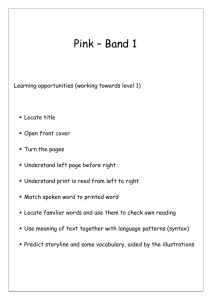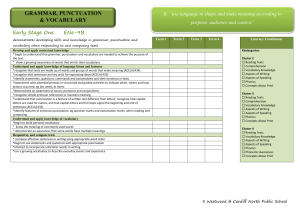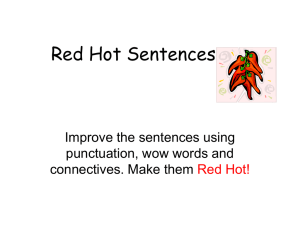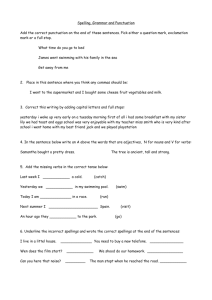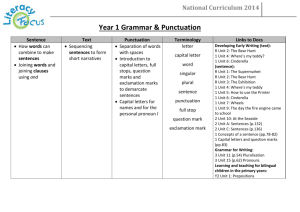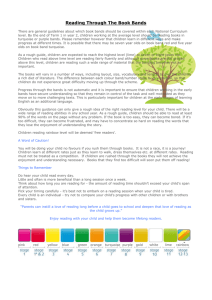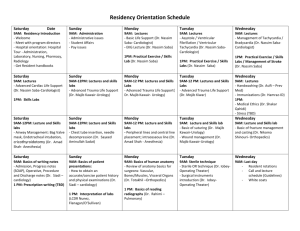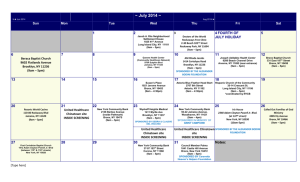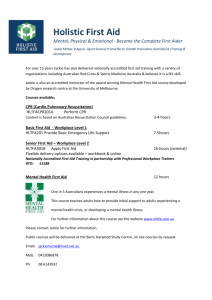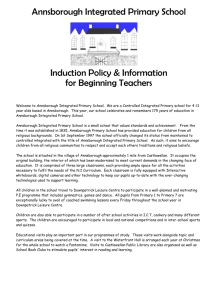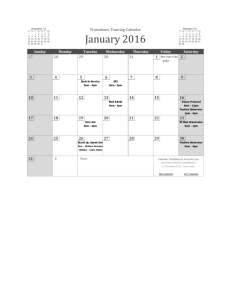Reading Support for Years 3 and 4 January 2016 SPS
advertisement
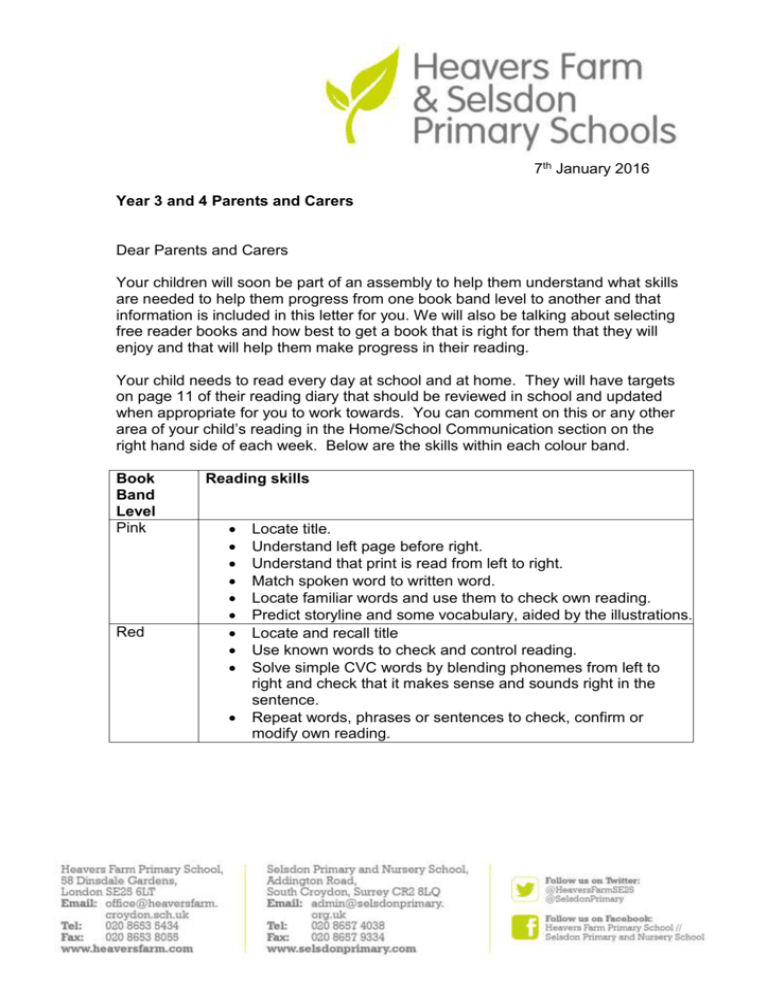
7th January 2016 Year 3 and 4 Parents and Carers Dear Parents and Carers Your children will soon be part of an assembly to help them understand what skills are needed to help them progress from one book band level to another and that information is included in this letter for you. We will also be talking about selecting free reader books and how best to get a book that is right for them that they will enjoy and that will help them make progress in their reading. Your child needs to read every day at school and at home. They will have targets on page 11 of their reading diary that should be reviewed in school and updated when appropriate for you to work towards. You can comment on this or any other area of your child’s reading in the Home/School Communication section on the right hand side of each week. Below are the skills within each colour band. Book Band Level Pink Red Reading skills Locate title. Understand left page before right. Understand that print is read from left to right. Match spoken word to written word. Locate familiar words and use them to check own reading. Predict storyline and some vocabulary, aided by the illustrations. Locate and recall title Use known words to check and control reading. Solve simple CVC words by blending phonemes from left to right and check that it makes sense and sounds right in the sentence. Repeat words, phrases or sentences to check, confirm or modify own reading. Yellow Blue Green Orange Turquoise Purple Follow print with eyes, pointing only at points of difficulty. Take more note of punctuation. Cross check all sources of information more quickly while reading. Note familiar words and letter clusters and use to get to unknown words. Search for information in print to predict, confirm or attempt new words. Self-correct more rapidly on the run. Solve new words using print information along with attention to meaning. Manage a greater variety of text types. Discuss content of the text in a way which indicates precise understanding. Read fluently with attention to punctuation. Discuss and interpret character and plot more fully. Track the next line of print without difficulty. Read longer phrases and more complex sentences. Attend to a greater range of punctuation and text layout. Search for and use familiar syllables within words to read longer words. Infer meaning from text. Begin to use appropriate terminology when discussing different types of text. Extract meaning from the text while reading with less dependence on illustrations. Use punctuation and text layout to read with a greater range of expression and control. Sustain reading through longer sentence structures and paragraphs. Tackle a higher ratio of more complex words. Look through a variety of texts with growing independence to predict content, layout and story development. Read silently or quietly at a more rapid pace, taking note of punctuation and using it to keep track of longer sentences. Solve unfamiliar words on the run. Adapt to fiction, non-fiction or poetic language with growing flexibility. Gold White Lime Take more conscious account of literary effects used by writers. Make more conscious use of reading to extend speaking and writing vocabulary and syntax. Locate and interpret information in non-fiction. Read silently most of the time. Sustain interest in a longer text, returning to it easily after a break. Use texts more fully as a reference and as a model. Search for and find information in texts more flexibly. Notice the spelling of unfamiliar words and relate to known words. Show increased awareness of vocabulary and precise meaning. Express reasoned opinions about what is read and compare texts. Offer and discuss interpretations of text. Use experience of reading a variety of material to recognize text-type and predict layout and general content. Read silently most of the time, adjusting speed of reading to suit material and monitoring the precise meaning. Rerun to make different interpretations of dialogue, more complex sentences, unfamiliar language etc. Make use of blurbs, chapter headings, glossaries, and indexes quickly and accurately. Take note and devise ways to remember the meaning and spelling of unfamiliar words. You will be able to access more advice to help you know how to support your child progress with their reading during workshops run by your child’s class teacher where you will have the opportunity to work alongside your child to improve their reading. These will be held on the following dates at the start of the school day for about half an hour. Creche facilities will be made available for pre-school aged children. Porpoise: 2nd February 9am Seal: 4th February 9am Dolphin: 5th February 9am Fox: 8th February 9am Stag: 10th February 9am Deer: 11th February 9am We look forward to working with you to help improve your child’s reading. If you have any questions, please approach your child’s class teacher in the first instance. Best Wishes The English Team
